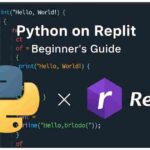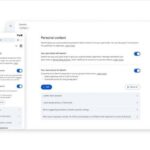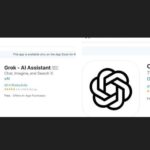It started on an ordinary, slightly chaotic Monday. My desk was covered in sticky notes, my email inbox had gone wild, and my head was buzzing with half-remembered tasks. I realized something needed to change. I’d read articles about “artificial intelligence assistants,” but I hadn’t yet taken the leap. This was my chance to find out if AI could really help me get organized.
I decided to dig deep, but not just through marketing pages or shiny product demos. Instead, I turned to where real people talk about their real experiences: Reddit. Specifically, the active thread on r/ArtificialInteligence about the best AI personal assistant.
Here’s what happened next—a journey across modern AI helpers, told from my perspective as someone who wanted simple, jargon-free help.

Table of Contents
The Quest Begins: Why Even Bother With AI Assistants?
Before I dove into the comparison, I had to ask myself: What do I really want from an artificial intelligence assistant?
- Someone (or something) to remember all my appointments.
- Automatic meeting notes, so I never forget details.
- Quick task lists that sync across all my devices.
- The ability to find information fast, almost like having my own personal Google.
I used to think these tools were just for techies. But the more I struggled with scattered notes and missed reminders, the more I realized: regular people like me might need digital help the most.
My First Impressions
I had tried simple assistants before—think Siri and Alexa. They were fun, but they didn’t really change my day-to-day routine. I wanted something deeper. Not just voice commands. I wanted an assistant who could learn and adapt to my unique needs.
Researching Options: Reddit’s Honest AI Assistant Discussion
Reading through Reddit’s thread saved me weeks of trial and error. Real people shared what worked, what didn’t, and what to watch for.
One thing was clear: there isn’t a single “best” artificial intelligence assistant. Instead, each has strengths and limitations. People’s needs are as unique as their jobs.
Most Popular AI Assistant Candidates from Reddit
- Plaud: Popular for notes and to-do lists.
- Saner.ai: Highly recommended to try.
- LibreChat: Best for those who want multiple AIs in one platform.
- shadow.do: Loved by freelancers using lots of meeting tools.
- Microsoft Copilot: Integrated deeply into Windows and Microsoft’s Office apps.
Let’s walk through each, using stories and insights from real users.
Spotlight: What Makes Each AI Assistant Unique?
Plaud: The Notetaker and List-Maker
Imagine a digital notebook that never forgets. That’s what Plaud offers. In the Reddit discussion, more than one person said Plaud helps with taking meeting notes and to-do lists.
But there’s a catch. It doesn’t handle contacts and calendar events just yet. So you get two sides of organization—notes and lists—but not a complete digital “brain.”
My Experience
I decided to try Plaud for a week. Immediately, my desk felt cleaner. Whenever I left a meeting, Plaud had captured the action items. I could check things off from my phone or laptop. No more searching crumpled notes. But at the end of the week, I still missed calendar reminders.
Takeaway: Plaud is perfect if your main problem is keeping track of ideas and to-dos. But if your life is built around meetings and appointments, you’ll want something with calendar integration.
Learn more about modern AI note-taking apps
Saner.ai: The Experimental Choice
Saner.ai came up as a “you should try this” option from Reddit users. People described it as innovative, always rolling out new features, and very responsive to feedback.
But what does “experimental” mean in practice?
What I Observed
I spent a few days with Saner.ai. The coolest part: it tries to connect different pieces of my digital life. For example, it looked for patterns in my workflow, like when I usually finish certain tasks.
Saner.ai lets me test things like automated project management and smart reminders that pop up based on my habits. The downside was occasional bugs and a few features still in beta.
Takeaway: If you like to be on the cutting edge, Saner.ai will likely surprise you. Just be patient with updates, and expect a few bumps in the road.
LibreChat: One Platform, Many AIs
LibreChat was described in the Reddit thread as the “power user” option. It supports chatbot models like OpenAI’s GPT, DALL·E for images, and Google’s Gemini. Instead of choosing just one AI, you get them all in one spot.
But—according to Reddit—the setup can be tricky. Installations and updates often require technical know-how.
When I Tested LibreChat
For a full weekend, I tried LibreChat as my main “assistant.” I liked the flexibility: I could use natural language prompts for planning, brainstorming, or even generating images with DALL·E.
At work, I found LibreChat shone during team brainstorms. We could collaborate on ideas and let the AI help us visualize tricky concepts. Still, installation on a local server meant I had to dig into command lines—a little intimidating at first.
Takeaway: LibreChat is the Swiss Army knife for AI fans. But if you hesitate at the thought of server commands, you may want something turnkey instead.
Read more about open-source AI platforms
Shadow.Do: The Freelancer’s Friend
One user’s story on Reddit made a shadow.do stick in my mind. They said, “If you use different video platforms every day, shadow.do just figures it out for you.”
For freelancers—or anyone hopping between Zoom, Google Meet, and Teams—this tool captures summaries, action items, and calendar events. All in one dashboard.
My Hands-On Experience
Over two weeks, I ran every meeting through shadow.do. Instead of switching between several different apps, I finally had one “hub” for my digital calendar, notes, and reminders.
Calendar integration was next-level. I’d finish a call and shadow.do already knew what needed to be scheduled next. It even sent follow-up reminders so nothing slipped through the cracks.
Takeaway: shadow.do is perfect for people juggling lots of workspaces. It’s less helpful if you stay in one corporate tool all day, since deeper integrations work best when you use multiple apps.
Explore all-in-one productivity dashboards
Microsoft Copilot: Deepest Windows Integration
Naturally, Microsoft Copilot got plenty of attention on Reddit. People said it’s best for heavy Windows and Office users. Copilot connects to Word, Excel, Outlook, and more, offering quick access to summaries, drafting emails, and scheduling.
Using Copilot on My Windows PC
I installed Copilot on my main Windows laptop. What I found amazed me. Creating slides in PowerPoint? Copilot whipped up outlines and even generated placeholder images. My most-used feature was quick summaries of long documents—suddenly, reading dense emails became easy.
But as some Reddit users warned, Copilot is much less useful on Mac or Linux. If you’re outside the Microsoft ecosystem, don’t expect the same magic.
Takeaway: If you live in Microsoft’s world, Copilot feels like having an executive assistant. Otherwise, you might hit frustrating limits.
Dive deeper into Windows 11 Copilot
The Importance of App Integration (And Why It Matters)
One big theme in the Reddit discussion was integration. This simply means: how well does your AI assistant connect with other tools you use?
- Can it pull in appointments from Google Calendar or Outlook?
- Does it recognize meeting links from Zoom or Teams?
- Will it send notifications to your phone or email?
The more “connected” your assistant, the less switching between apps you need to do.
Frustrations When Integration Fails
At one point, I tried using three different assistants at once to cover notes, calendars, and reminders. Information got lost. Reminders appeared in the wrong place. I missed a meeting because the notice only went to one device.
Reddit users agreed: The best assistants combine everything in one place—or connect to your main hub so you never miss a beat.
Why integrations are the next wave in productivity apps
Privacy and Security: What Should You Know?
Another hot topic in the Reddit thread: privacy. Many AI assistants use online servers to process your data. Some only store information locally, which is safer—especially if you work in a business setting.
- Cloud-based assistants: Convenient, but your data lives on someone else’s servers.
- Local or open-source tools (like LibreChat): More work to set up, but you keep control.
Before I added any assistant to my workflow, I checked their privacy policies. I even reached out to my IT department at work. In some companies, installing tools like Copilot or shadow.do isn’t allowed due to strict regulations.
My Advice: Always read the policy, and when in doubt, ask a tech specialist before using new tools at work.
Read the latest on AI and data security
Stories from the Reddit Community: Real Users, Real Results
No blog would be complete without real-life stories. Reddit users kindly shared both wins and frustrations.
- One freelancer said, “shadow.do keeps me sane in a sea of meetings. The follow-up summaries help me close more deals.”
- A small business owner wrote, “Plaud turned my jotted notes into actionable lists. Now I don’t lose ideas mid-day.”
- A corporate manager shared, “Copilot saves me 30 minutes each morning reading reports, so I can focus on decisions instead of details.”
- Some felt let down by growing pains: “Saner.ai is great… when it works. Sometimes, updates break things for a day or two.”
The recurring lesson? Every tool has strengths and rough edges. Try each for a week, and pick what blends best with your workflow.
Where Is All This Going? Dreaming About AI’s Future
Reddit’s community is nothing if not forward-thinking. Users dreamed about upcoming features:
- “I wish I could swap out Copilot for a Google AI, or even Mozilla, based on the project.”
- “Imagine an assistant that doesn’t just remind but predicts what I might forget—before I ask!”
- “Right now, assistants help me do my work. Soon, I hope they’ll help me become better at my work.”
That last point stuck with me. Today, the right tool can save time. Tomorrow, a truly intelligent assistant might become a personal coach—not just a reminder service.
Explore visions of AI’s next wave
My Ongoing Recommendations for AI Assistant Seekers
If you’ve read this far, you’re probably wondering: How do I pick the right assistant for me?
Here’s my step-by-step approach, based on all my research and the wisdom from Reddit:
1. List Your Must-Have Features
Write down what you absolutely need:
- Meeting notes?
- Calendar syncing?
- Action item reminders?
- Integration with task management like Trello or Todoist?
- Privacy-first setup?
2. Test Drive One Tool at a Time
Spend at least three days with each. Use real tasks, meetings, and to-dos—not just demos or “test” data. This helps you spot gaps before you commit.
3. Review Privacy and Device Compatibility
Do you need something for mobile, desktop, or both? Are you okay with cloud storage, or do you need local-only tools? Always check before you connect sensitive accounts.
4. Check Support and User Community
Is there a strong help section? Do developers respond to feedback? Reddit is a goldmine for these answers.
See a curated AI tools directory
Stories I Heard—and Lessons Learned
One theme I heard repeatedly on Reddit was that the ideal assistant is less about fancy AI, more about real-world compatibility.
For example, a marketing consultant shared how Plaud helped them capture creative ideas at odd hours—“I just speak into my phone and trust it’ll be on my list in the morning.”
Another user found solace in shadow.do after burning out on complex project management apps. “Simple summaries and gentle reminders work better than endless settings and features,” they wrote.
But several users ran into “scope creep.” One person layered Copilot on top of another AI assistant—only to end up more confused. The lesson: when it comes to digital help, more is not always better. Streamlined, integrated tools win out.
How AI Assistants Are Changing the Way I Work
Since starting this experiment, my day-to-day life feels lighter. I’m no longer dreading forgotten appointments or missing key notes during meetings. Even my weekends feel less stressful, with reminders that actually arrive on time and lists that don’t vanish.
But beyond productivity, something more important happened: I trust myself again to stay on top of things. My digital assistant handles the repetitive and routine. I get to focus on problem-solving, creativity, and connecting with others.
Final Thoughts: The AI Assistant for Everyone
Artificial intelligence assistants have come a long way from early, clunky chatbots. Now, they offer real solutions to real problems. But they’re not one-size-fits-all. Your best fit depends on your unique workflow, tech tools, and—above all—your comfort with new technology.
My Picks Recap (From Least to Most Techy)
- Plaud: Best for note-taking and simple lists.
- Saner.ai: For those who love experimental, evolving features.
- shadow.do: Perfect when you use many video or meeting platforms.
- LibreChat: The choice for open-source fans wanting multiple AIs.
- Microsoft Copilot: Deep Windows and Office integration, great for corporate users.
Frequently Asked Questions (FAQs) About Artificial Intelligence Assistants
1. What is an artificial intelligence assistant?
An artificial intelligence assistant is a digital tool or software that uses AI technology to help with tasks like note-taking, scheduling, reminders, answering questions, and organizing information. These assistants are designed to improve productivity by learning from your routines and providing support for your daily work.
2. How do AI assistants improve productivity?
AI assistants save time by automating routine tasks, organizing your calendar, sending reminders, taking meeting notes, and integrating with other tools you use. Instead of juggling multiple apps or forgetting tasks, the assistant keeps everything in one place and reminds you about important actions.
3. Are AI assistants safe to use for sensitive information?
It depends on the assistant. Some store your information in the cloud, while others keep data local or let you self-host. Always read the privacy policy and check if the tool meets your security needs—especially if you handle confidential business data.
4. Can AI assistants work across all my devices?
Most leading AI assistants offer cross-device syncing, meaning your notes and reminders follow you between your phone, tablet, and computer. However, some tools work best within certain ecosystems (like Microsoft Copilot with Windows and Office).
5. What are some popular AI assistants right now?
Popular options include Plaud (for note-taking), Saner.ai (experimental automation), LibreChat (for advanced users wanting multiple AI models), shadow.do (freelancer-friendly with strong integrations), and Microsoft Copilot (best for Windows and Office users).
6. How do I choose the best AI assistant for my needs?
List the features you need the most (notes, meetings, reminders, integrations, privacy). Try each assistant for a few days with real tasks, not just demos. See which blends easiest into your natural workflow.
7. Can I use more than one AI assistant at a time?
You can, but many users find that too many overlapping tools cause confusion or conflicting reminders. It’s usually best to pick one—maybe two—for simplicity and less digital “noise.”
8. What should I look for in terms of integrations?
Look for assistants that connect to the apps you already use, such as Google Calendar, Outlook, Zoom, Slack, or project management tools. The more integrations, the smoother your workflow will be.
9. Is there a learning curve for AI assistants?
Most modern AI assistants are user-friendly, but some (like LibreChat) may need more technical set-up or learning. Others, like Plaud or shadow.do, are designed for fast setup and immediate use.
10. Are AI assistants expensive?
Prices vary. Some offer free plans with basic features and paid options for more advanced integrations or team tools. Open-source tools like LibreChat are often free if you’re comfortable with the technical side.
11. Will AI assistants replace human jobs?
AI assistants are built to support and enhance your productivity, not replace people. They handle repetitive tasks so you can focus on unique, creative, or strategic work.
12. How often do these tools update with new features?
Many AI assistants, especially those discussed on Reddit, are updated regularly based on user feedback. That means you may see new features, integrations, and bug fixes almost monthly.
13. What happens if there’s a problem or bug?
Check the support or help section of your chosen tool. Popular options have strong communities (see Reddit for help). Some paid tools offer direct support or even onboarding sessions.
14. Are there good resources to compare more AI assistants?
Yes! Check out this AI tools directory for up-to-date, user-reviewed listings, or browse discussions in the Reddit AI assistant thread for real-world feedback.
Above all, start simple. Test what works. Don’t be afraid to change or mix tools as your needs evolve.
Want to keep learning about the best AI tools for real-life stories and practical tips? Follow this blog—and remember: sometimes the smartest move is letting a smart tool handle the busywork, so you can focus on what really matters.
Explore more tools and reviews here: AI tools directory, Reddit AI assistant discussions, and stay tuned for my next hands-on review!











